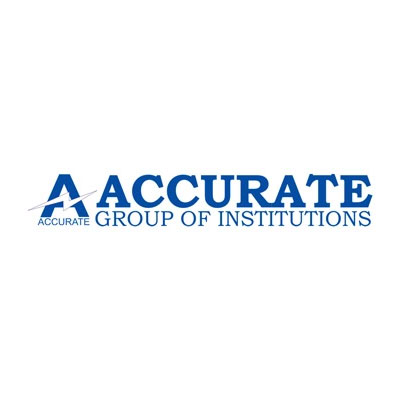Pharmacy is a profession which comes with all the challenges and responsibilities making it a demanding jobs. It is rewarding to be in this profession and thus there are many job opportunities out there.
Pharmacist
A career as a pharmacist is a great option for those who have a passion for helping others and want to work in the medical field. Pharmacists dispense medication and offer advice on its proper use, side effects, and other important information. They also collaborate with physicians and other healthcare professionals to ensure that patients receive the best possible care.
There are many different career paths that a pharmacist can take. Some pharmacists work in hospitals or clinics, while others work in retail pharmacies or pharmaceutical companies. Some pharmacists even choose to open their own pharmacies. No matter what path a pharmacist takes, they will always be playing an important role in the healthcare of their patients.
Pharmacy Technician
A pharmacy technician is a person who works in a pharmacy and assists the pharmacist in various tasks related to the preparation and dispensing of medications. A pharmacy technician may also be involved in other aspects of pharmacy operations, such as customer service, inventory management, and record keeping.
With the right training and experience, pharmacy technicians can find career opportunities in a variety of settings, such as hospitals, clinics, retail pharmacies, long-term care facilities, and more. Those interested in a career in pharmacy should consider pursuing a diploma or certificate program at a accredited trade school or community college.

Pharmacy Manager
The career opportunities for those with a diploma in pharmacy (D.Pharm.) & Bachelor in pharmacy (B.Pharm.) (D.Pharm.) & Bachelor in pharmacy (B.Pharm.) are vast and varied. One option is to become a pharmacy manager. Pharmacy managers are responsible for the day-to-day operations of a pharmacy, including supervising staff, ordering inventory, and ensuring compliance with all laws and regulations. They may also be responsible for managing finances and developing marketing plans.
While a diploma in pharmacy (D.Pharm.) & Bachelor in pharmacy (B.Pharm.) (D.Pharm.) & Bachelor in pharmacy (B.Pharm.) is not required to become a pharmacy manager, it can certainly give you a leg up on the competition. Those with a diploma will have a better understanding of the complexities of the profession and will be better prepared to take on the challenges of the role. If you are interested in becoming a pharmacy manager, contact your local pharmacy or hospital to see if they have any open positions.
Clinical Pharmacist
A clinical pharmacist is a healthcare professional who specializes in the safe and effective use of medications. They work in hospitals, clinics, and other settings where patients are being treated for various medical conditions. Clinical pharmacists work closely with physicians and other members of the healthcare team to ensure that patients receive the best possible care.
Clinical pharmacists have advanced training in the science of pharmacology and are experts in the use of medications. They use their knowledge to help patients manage their medications safely and effectively. Clinical pharmacists also provide education to patients and families about their medications and how to use them correctly.
The job outlook for clinical pharmacists is excellent. Employment is expected to grow much faster than average in the coming years. This growth will be driven by an aging population and the increasing prevalence of chronic conditions such as diabetes and heart disease. Clinical pharmacists will be needed to provide care for these patients and help them manage their medication regimens.
Pharmaceutical Sales Representative
A career as a pharmaceutical sales representative is a great option for those who have a diploma in pharmacy (D.Pharm.) & Bachelor in pharmacy (B.Pharm.) (D.Pharm.) & Bachelor in pharmacy (B.Pharm.). Pharmaceutical sales representatives work with doctors, pharmacists and other healthcare professionals to promote and sell pharmaceutical products. They must have excellent communication and people skills, and be able to effectively market the products they are representing.
Medical Science Liaison
Medical science liaisons (MSLs) are pharmaceutical representatives who act as a bridge between physicians and the company. They provide information about new drugs and therapies to doctors and other healthcare professionals, and they also collect feedback about the drugs from physicians. MSLs typically have a background in science or healthcare, and many have advanced degrees such as a PharmD or MD.
The role of an MSL has become increasingly important in recent years as the pharmaceutical industry has come under greater scrutiny. MSLs are tasked with ensuring that physicians have the latest information about their products, and they also play a key role in educating physicians about new drugs and therapies.
MSLs typically work for pharmaceutical companies, but they may also be employed by hospitals or other healthcare organizations. The job outlook for MSLs is good, as the demand for these professionals is expected to grow in the coming years.
Healthcare Information Systems Analyst
According to the U.S. Bureau of Labor Statistics, employment of healthcare information systems analysts is projected to grow 15 percent from 2019 to 2029, much faster than the average for all occupations. Job prospects should be especially good for analysts who have a graduate degree in health informatics or a related field, and who are familiar with electronic health records (EHRs) and other types of healthcare software.
Healthcare IT Project Manager
There are many different career opportunities available to those who have earned a diploma in pharmacy (D.Pharm.) & Bachelor in pharmacy (B.Pharm.) (D.Pharm.) & Bachelor in pharmacy (B.Pharm.) (D.Pharm.) & Bachelor in pharmacy (B.Pharm.) One option is to become a healthcare IT project manager. In this role, you would be responsible for overseeing the development and implementation of healthcare IT projects. You would need to have strong communication and organizational skills, as well as experience in the healthcare field.
Quality Assurance Jobs
As the quality assurance executives for a pharmaceutical company, you will be responsible for ensuring that products meet the required standards of quality. You will develop and implement quality control procedures, conduct audits, and investigate any complaints. You will also liaise with other departments to ensure that quality is considered at every stage of production. In order to be successful in this role, you will need to have excellent attention to detail and problem-solving skills.
Like most profession Pharma industry is demanding but rewarding for those who have courage to pursue a rewarding career.














